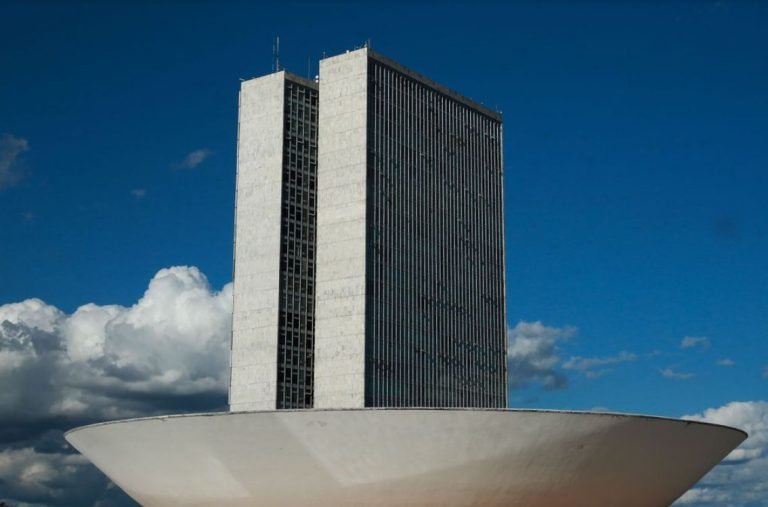In defense of democracy
25 Mar 2021, 14:23
More than thirty years after the process of transition from the military regime, Brazilian democracy is now paying a high price for not having been able to replace the National Security Law (Law No. 7,170/83) with a robust legislation protecting the institutions of the democratic Rule of Law.
With the rise of an authoritarian populist to power, we are faced with the threatening use of some provisions of the National Security Law – which are incompatible with the 1988 Constitution – to restrict and constrain the freedom of expression of critics and opponents of the current government.
In the absence of a new law to protect the institutions of the democratic Rule of Law, however, it is prudent to preserve those provisions of the old law that prove to be compatible with the 1988 constitutional system, so that the enemies of democracy do not take advantage of gaps in our legal system to promote the erosion of our constitution.
The systematic use of the National Security Law by the Bolsonaro administration, with the exclusive purpose of coercing and intimidating its critics and opponents, has become increasingly worrisome. Journalists, social leaders, politicians, and judges, such as Ricardo Noblat, Helio Schwartzman, Rui Castro, Sonia Guajajara, Luiz Inácio Lula da Silva, Ciro Gomes, and Gilmar Mendes are just a few examples of the government's determination to silence its critics, by means of using the National Security Law. More seriously, this conduct by the high-ranking officials of the federal government has inspired diffuse acts of repression against freedom of expression in different parts of the country.
Since the beginning of this administration, approximately 80 inquiries based on the National Security Law have been opened. The number of uses of this legislation is far higher than its use by previous governments. This is not, however, just a quantitative problem. Over the last three decades, when the National Security Law was invoked, it was mainly to combat crimes related to the theft or trafficking of weapons for the exclusive use of the Armed Forces. This is very different from the way it has been used by this government, which aims only to restrict one of the essential pillars of the democratic game, which is freedom of expression.
Although Law No. 7,170/83 is different from previous national security legislations, it still has many points of tension with the 1988 Federal Constitution. The incompatibility between Articles 22 and 26 of the aforementioned National Security Law – which refer to crimes of propaganda and opinion – and the regime of broad freedom of expression established by Article 5, items IV and IX, and Article 220, heading, of the Federal Constitution, is striking.
Article 22 of Law 7,170/83 establishes as a crime the act of "making propaganda in public", among others, "of violent or illegal processes to alter the political or social order", without establishing any requirement that such "propaganda" may create "real danger" to the institutions of the Democratic Rule of Law. In this sense, it creates a disproportionate burden on freedom of expression. The free flow of ideas, including criticism of the regime and the social order, is an essential part of the core protection of freedom of expression. What it does not protect are the acts of destabilization and violence against institutions that endanger the very survival of democracy. In this sense, Article 22 is not compatible with Article 5, items IV and IX, of the Federal Constitution.
Article 26 of the National Security Law, in turn, establishes as a crime of national security: "To slander or defame the President of the Republic, the Federal Senate, the House of Representatives, or the Federal Supreme Court, imputing to them a fact defined as a crime or a fact offensive to reputation". There is a fundamental defect here that makes the respective provision incompatible with the 1988 Constitution. By giving primacy to the protection of the objective honor and reputation of those who occupy the presidency of the branches of government, to the detriment of the institutions themselves, the aforementioned provision inhibits public debate and the possibility of criticism of government agents, without promoting any protection for the institutions of the democratic Rule of Law. Furthermore, if the intention is to offend, the fact is already punishable by the Penal Code.
As recent Brazilian experience has shown, this provision opens up the possibility for freedom of expression to be constrained, and is therefore incompatible with the provisions of Article 220, Paragraph 1, of the Federal Constitution, which states that "no law shall contain any provision which may represent a hindrance to full freedom of expression”. Therefore, it should be declared unconstitutional as well.
In its role as guardian of the Constitution, it will be up to the Federal Supreme Court, in the near future, to judge the compatibility of the National Security Law with the constitutional system established in 1988. Its challenge will be to distinguish between the provisions of the National Security Law that were accepted by the 1988 Constitution and can be useful in protecting the institutions of the democratic Rule of law, and those that offend the Constitution and have been widely used to restrict the freedom of expression regime it has adopted.
The Constitution cannot be seen as a “suicide pact,” as Justice Robert Jackson of the U.S. Supreme Court warned in 1949. Its institutions not only can but must protect it from those who would seek its erosion.
Article originally published in the newspaper Folha de S. Paulo, on March 25, 2021